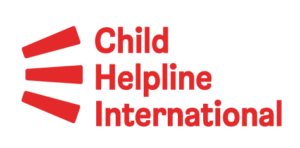Last week, Child Helpline International was invited to attend the High-Level Meeting on Protecting Children: EU Support for Reform of the Ukrainian Child Protection System, held by the Swedish Presidency of the Council of the European Union. We were invited to join a panel of experts to share the work we have done during the past year to strengthen child helplines in Ukraine and neighbouring countries.

The meeting provided a platform for EU member states, the European Parliament, EU institutions, Ukrainian children and young people currently residing in Sweden and key stakeholders from civil society, to discuss violations to children’s rights resulting from the Russian full-scale invasion of Ukraine, as well as the state and future strengthening of the Ukrainian child protection system. Key themes on the agenda included mental health and psychosocial support for Ukrainian children in Europe, deportation of children to Russia and the process to de-institutionalize children.
Across two days, we heard from some incredible speakers, including Her Majesty Queen Silvia of Sweden, Prime Minister of Sweden Ulf Kristersson, First Lady of Ukraine Olena Zelenska, Vice-President and EU Commissioner for Democracy and Demography Dubravka Šuica and Executive Director for UNICEF, Catherine Russell.

I had the honour of joining a panel – The Consequences of Russia’s War of Aggression against Ukraine from the Perspective of the Child – to discuss the role that child helplines have played in responding to children affected by the war in Ukraine. In my presentation, I highlighted three key areas of concern reported by our child helpline members over the past year – violence against children, the effects of grief, and concerns about integration. These are all areas that need attention to fully support Ukrainian children.
Violence against children
The war in Ukraine has resulted in an increase in reports to child helplines of domestic, physical and sexual violence against children. Our Ukrainian child helpline member noted an increase in reports of such violence by both Ukrainians as well as Russian state forces since the start of the full-scale invasion. Additionally, sexual violence against children continues to intersect with the online sphere, with several reports to child helplines concerning possible sexual extortion and requests to produce Child Sexual Abuse Material.
The effect of grief
The war has resulted in widespread loss in children’s lives, not only at present but also after their return to Ukraine. Children from Ukraine have lost parents, siblings, friends, pets and homes in the war, and grief and loss counselling will likely become increasingly important as time goes on.
(Re-)integration
Children have expressed concern about their (re-)integration, both in refugee host countries as well as upon their return to Ukraine. Children are calling child helplines about language barriers, bullying and discrimination because of their Ukrainian nationality. In the long-term perspective, some counsellors are worried about how Ukrainian children will adjust to their “new Ukraine” when they return to the country, and how to manage their expectations of what home will now look like.
Child helplines have a key role to play in protecting and promoting the rights of all children, including children in migration. In particular, child helplines are essential in any national MHPSS intervention and to end violence against children. Child helplines, confidential and easily accessible directly for children and parents, play an essential role as an entry point to child protection services across Europe, especially under our harmonized number for child helplines, 116 111. Unfortunately, their key role is not always officially acknowledged, and this needs to change.

Our recommendations
Action needs to be taken by policymakers to ensure that child helplines’ important role gains full recognition in national and EU child rights policy and practice, so that they can provide full support services to all children and young people, including those displaced within and outside of Ukraine. Therefore, we strongly recommend the following, based on the challenges faced by child helplines in providing services to children affected by the war in Ukraine:
- Governments and donors should prioritize resources for national child helplines, in particular those operating the harmonized 116 111 number, to build capacity and adjust their services to cater for the specific needs of Ukrainian children, in accordance with Child Helpline International’s Core Quality Standards framework.
- The European Union should support this requirement by strengthening its recommendations to national governments and mentioning child helplines directly in all official documents related to issues of child protection, children’s rights and the war in Ukraine.

By implementing these recommendations, child helplines can be integrated into national child protection policies across Europe, ensuring better child protection systems for refugees from Ukraine and providing access to relevant, appropriate services for affected children. This would also allow for more funding, more counsellors and more training and longer operating hours, as well as better connectivity to the larger national child protection system.
We would like to thank the Swedish Presidency of the Council of the European Union for recognizing the key role child helplines play in (re-)shaping the Ukrainian and wider European Child Protection systems, and for providing Child Helpline International the platform to advocate for widespread recognition of their work.

